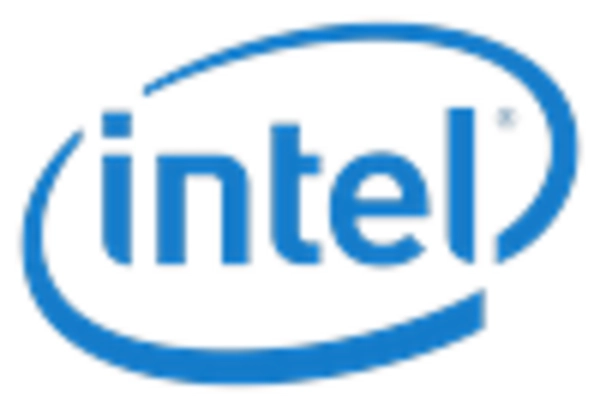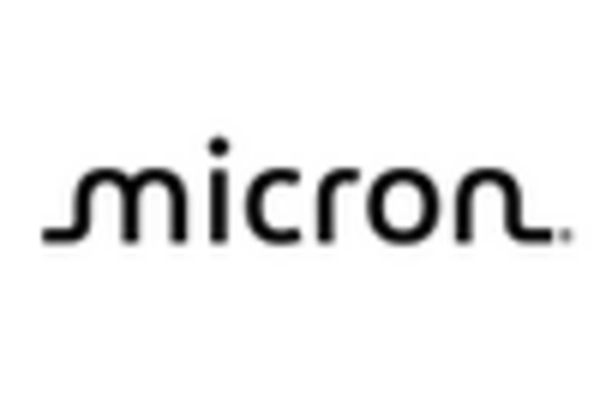-
EXECUTIVE SUMMARY
-
MARKET INTRODUCTION
-
Definition
-
Scope of the Study
- Research Objective
- Assumptions
- Limitations
-
RESEARCH METHODOLOGY
-
Overview
-
Data Mining
-
Secondary Research
-
Primary Research
- Primary Interviews
- Breakdown of Primary Respondents
-
and Information Gathering Process
-
Forecasting Modality
-
Market Size Estimation
- Bottom-Up Approach
- Top-Down Approach
-
Data Triangulation
-
Validation
-
MARKET DYNAMICS
-
Overview
-
Drivers
-
Restraints
-
Opportunities
-
MARKET FACTOR ANALYSIS
-
Value Chain Analysis
-
Porter’s Five Forces Analysis
- Bargaining Power
- Threat of New Entrants
- Threat of Substitutes
- Intensity of Rivalry
-
of Suppliers
-
Bargaining Power of Buyers
-
COVID-19 Impact Analysis
- Market Impact Analysis
- Regional Impact
- Opportunity and
-
Threat Analysis
-
GLOBAL SEMICONDUCTOR FABRICATION MATERIALS MARKET, BY MATERIAL
-
Overview
-
Silicon wafers
-
Photomasks
-
Photoresists
-
Wet Chemicals
-
CMP Slurry and Pads
-
Gases
-
Sputter Targets
-
Photoresist Ancillaries
-
GLOBAL SEMICONDUCTOR
-
FABRICATION MATERIALS MARKET, BY APPLICATION
-
Overview
-
Consumer Appliances
-
Power Generation
-
Electronic Components
-
Others
-
GLOBAL SEMICONDUCTOR FABRICATION MATERIALS MARKET,
-
BY END USER
-
Overview
-
Telecommunication
-
Energy
-
Electrical and Electronics
-
Medical and Healthcare
-
Automotive
-
Others
-
GLOBAL SEMICONDUCTOR FABRICATION MATERIALS MARKET, BY
-
REGION
-
Overview
-
North America
-
U.S.
-
Canada
-
Europe
-
Germany
-
France
-
U.K
-
Italy
-
Spain
-
Rest of Europe
-
Asia-Pacific
-
China
-
India
-
Japan
-
South Korea
-
Australia
-
Rest of Asia-Pacific
-
Rest of the World
-
Middle East
-
Africa
-
Latin America
-
COMPETITIVE LANDSCAPE
-
Overview
-
Competitive Analysis
-
Market Share Analysis
-
Major Growth Strategy in the Global Semiconductor Fabrication Materials Market,
-
Competitive Benchmarking
-
Leading Players
- New Material Launch/Application Deployment
- Merger &
- Sales & Operating Income, 2022
- Major Players R&D Expenditure. 2022
-
in Terms of Number of Developments in the Global Semiconductor Fabrication Materials
-
Market,
-
Key developments and Growth Strategies
-
Acquisitions
-
Joint Ventures
-
Major Players Financial Matrix
-
COMPANY PROFILES
-
Kanto Chemical
- Company Overview
- Financial Overview
- Materials Offered
- Key Developments
- SWOT Analysis
- Key Strategies
-
Co., Inc..
-
Company Overview
-
Financial Overview
-
Materials Offered
-
Key Developments
-
SWOT Analysis
-
Key Strategies
-
Praxair, Inc.
-
Company Overview
-
Financial Overview
-
Materials Offered
-
Key Developments
-
SWOT Analysis
-
Key Strategies
-
Dow Chemical Company
-
Company Overview
-
Financial Overview
-
Materials Offered
-
Key Developments
-
SWOT Analysis
-
Key Strategies
-
Air Products and Chemicals Inc.
-
Air Liquide SA
- Company Overview
- Financial Overview
- Materials Offered
- Key Developments
- SWOT Analysis
- Key Strategies
-
TAIYO NIPPON SANSO.
- Company Overview
- Financial Overview
- Materials Offered
- Key Developments
- SWOT Analysis
- Key Strategies
-
Alent Plc
- Company Overview
- Financial Overview
- Materials Offered
- Key Developments
- SWOT Analysis
- Key Strategies
-
JSR Corporation
- Company Overview
- Financial Overview
- Materials Offered
- Key Developments
- SWOT Analysis
- Key Strategies
-
Linde AG
- Company Overview
- Financial Overview
- Materials Offered
- Key Developments
- SWOT Analysis
- Key Strategies
-
BASF SE
- Company Overview
- Financial Overview
- Materials Offered
- Key Developments
- SWOT Analysis
- Key Strategies
-
APPENDIX
-
References
-
Related Reports
-
-
LIST OF TABLES
-
GLOBAL SEMICONDUCTOR FABRICATION MATERIALS MARKET,
-
SYNOPSIS, 2025 - 2034
-
TABLE
-
GLOBAL SEMICONDUCTOR FABRICATION MATERIALS MARKET, ESTIMATES & FORECAST, 2025
-
- 2034 (USD BILLION)
-
TABLE
-
GLOBAL SEMICONDUCTOR FABRICATION MATERIALS MARKET, BY MATERIAL, 2025 - 2034 (USD
-
BILLION)
-
TABLE
-
GLOBAL SEMICONDUCTOR FABRICATION MATERIALS MARKET, BY APPLICATION, 2025 - 2034
-
(USD BILLION)
-
TABLE
-
GLOBAL SEMICONDUCTOR FABRICATION MATERIALS MARKET, BY END USER, 2025 - 2034 (USD
-
BILLION)
-
TABLE
-
NORTH AMERICA SEMICONDUCTOR FABRICATION MATERIALS MARKET, BY MATERIAL, 2025 -
-
TABLE
-
NORTH AMERICA SEMICONDUCTOR FABRICATION MATERIALS MARKET, BY APPLICATION, 2025
-
- 2034 (USD BILLION)
-
TABLE
-
NORTH AMERICA SEMICONDUCTOR FABRICATION MATERIALS MARKET, BY END USER, 2025 -
-
TABLE
-
NORTH AMERICA SEMICONDUCTOR FABRICATION MATERIALS MARKET, BY COUNTRY, 2025 - 2034
-
(USD BILLION)
-
TABLE
-
U.S. SEMICONDUCTOR FABRICATION MATERIALS MARKET, BY MATERIAL, 2025 - 2034 (USD
-
BILLION)
-
TABLE
-
U.S. SEMICONDUCTOR FABRICATION MATERIALS MARKET, BY APPLICATION, 2025 - 2034
-
(USD BILLION)
-
TABLE
-
U.S. SEMICONDUCTOR FABRICATION MATERIALS MARKET, BY END USER, 2025 - 2034 (USD
-
BILLION)
-
TABLE
-
CANADA SEMICONDUCTOR FABRICATION MATERIALS MARKET, BY MATERIAL, 2025 - 2034 (USD
-
BILLION)
-
TABLE
-
CANADA SEMICONDUCTOR FABRICATION MATERIALS MARKET, BY APPLICATION, 2025 - 2034
-
(USD BILLION)
-
TABLE
-
CANADA SEMICONDUCTOR FABRICATION MATERIALS MARKET, BY END USER, 2025 - 2034 (USD
-
BILLION)
-
TABLE
-
EUROPE SEMICONDUCTOR FABRICATION MATERIALS MARKET, BY MATERIAL, 2025 - 2034 (USD
-
BILLION)
-
TABLE
-
EUROPE SEMICONDUCTOR FABRICATION MATERIALS MARKET, BY APPLICATION, 2025 - 2034
-
(USD BILLION)
-
TABLE
-
EUROPE SEMICONDUCTOR FABRICATION MATERIALS MARKET, BY END USER, 2025 - 2034 (USD
-
BILLION)
-
TABLE
-
EUROPE SEMICONDUCTOR FABRICATION MATERIALS MARKET, BY COUNTRY, 2025 - 2034 (USD
-
BILLION)
-
TABLE
-
GERMANY SEMICONDUCTOR FABRICATION MATERIALS MARKET, BY MATERIAL, 2025 - 2034
-
(USD BILLION)
-
TABLE
-
GERMANY SEMICONDUCTOR FABRICATION MATERIALS MARKET, BY APPLICATION, 2025 - 2034
-
(USD BILLION)
-
TABLE
-
GERMANY SEMICONDUCTOR FABRICATION MATERIALS MARKET, BY END USER, 2025 - 2034
-
(USD BILLION)
-
TABLE
-
FRANCE SEMICONDUCTOR FABRICATION MATERIALS MARKET, BY MATERIAL, 2025 - 2034 (USD
-
BILLION)
-
TABLE
-
FRANCE SEMICONDUCTOR FABRICATION MATERIALS MARKET, BY APPLICATION, 2025 - 2034
-
(USD BILLION)
-
TABLE
-
FRANCE SEMICONDUCTOR FABRICATION MATERIALS MARKET, BY END USER, 2025 - 2034 (USD
-
BILLION)
-
TABLE
-
ITALY SEMICONDUCTOR FABRICATION MATERIALS MARKET, BY MATERIAL, 2025 - 2034 (USD
-
BILLION)
-
TABLE
-
ITALY SEMICONDUCTOR FABRICATION MATERIALS MARKET, BY APPLICATION, 2025 - 2034
-
(USD BILLION)
-
TABLE
-
ITALY SEMICONDUCTOR FABRICATION MATERIALS MARKET, BY END USER, 2025 - 2034 (USD
-
BILLION)
-
TABLE
-
SPAIN SEMICONDUCTOR FABRICATION MATERIALS MARKET, BY MATERIAL, 2025 - 2034 (USD
-
BILLION)
-
TABLE
-
SPAIN SEMICONDUCTOR FABRICATION MATERIALS MARKET, BY APPLICATION, 2025 - 2034
-
(USD BILLION)
-
TABLE
-
SPAIN SEMICONDUCTOR FABRICATION MATERIALS MARKET, BY END USER, 2025 - 2034 (USD
-
BILLION)
-
TABLE
-
U.K SEMICONDUCTOR FABRICATION MATERIALS MARKET, BY MATERIAL, 2025 - 2034 (USD
-
BILLION)
-
TABLE
-
U.K SEMICONDUCTOR FABRICATION MATERIALS MARKET, BY APPLICATION, 2025 - 2034 (USD
-
BILLION)
-
TABLE
-
U.K SEMICONDUCTOR FABRICATION MATERIALS MARKET, BY END USER, 2025 - 2034 (USD
-
BILLION)
-
TABLE
-
REST OF EUROPE SEMICONDUCTOR FABRICATION MATERIALS MARKET, BY MATERIAL, 2025
-
- 2034 (USD BILLION)
-
TABLE
-
REST OF EUROPE SEMICONDUCTOR FABRICATION MATERIALS MARKET, BY APPLICATION, 2025
-
- 2034 (USD BILLION)
-
TABLE
-
REST OF EUROPE SEMICONDUCTOR FABRICATION MATERIALS MARKET, BY END USER, 2025
-
- 2034 (USD BILLION)
-
TABLE
-
ASIA PACIFIC SEMICONDUCTOR FABRICATION MATERIALS MARKET, BY MATERIAL, 2025 -
-
TABLE
-
ASIA PACIFIC SEMICONDUCTOR FABRICATION MATERIALS MARKET, BY APPLICATION, 2025
-
- 2034 (USD BILLION)
-
TABLE
-
ASIA PACIFIC SEMICONDUCTOR FABRICATION MATERIALS MARKET, BY END USER, 2025 -
-
TABLE
-
ASIA PACIFIC SEMICONDUCTOR FABRICATION MATERIALS MARKET, BY COUNTRY, 2025 - 2034
-
(USD BILLION)
-
TABLE
-
JAPAN SEMICONDUCTOR FABRICATION MATERIALS MARKET, BY MATERIAL, 2025 - 2034 (USD
-
BILLION)
-
TABLE
-
JAPAN SEMICONDUCTOR FABRICATION MATERIALS MARKET, BY APPLICATION, 2025 - 2034
-
(USD BILLION)
-
TABLE
-
JAPAN SEMICONDUCTOR FABRICATION MATERIALS MARKET, BY END USER, 2025 - 2034 (USD
-
BILLION)
-
TABLE
-
CHINA SEMICONDUCTOR FABRICATION MATERIALS MARKET, BY MATERIAL, 2025 - 2034 (USD
-
BILLION)
-
TABLE
-
CHINA SEMICONDUCTOR FABRICATION MATERIALS MARKET, BY APPLICATION, 2025 - 2034
-
(USD BILLION)
-
TABLE
-
CHINA SEMICONDUCTOR FABRICATION MATERIALS MARKET, BY END USER, 2025 - 2034 (USD
-
BILLION)
-
TABLE
-
INDIA SEMICONDUCTOR FABRICATION MATERIALS MARKET, BY MATERIAL, 2025 - 2034 (USD
-
BILLION)
-
TABLE
-
INDIA SEMICONDUCTOR FABRICATION MATERIALS MARKET, BY APPLICATION, 2025 - 2034
-
(USD BILLION)
-
TABLE
-
INDIA SEMICONDUCTOR FABRICATION MATERIALS MARKET, BY END USER, 2025 - 2034 (USD
-
BILLION)
-
TABLE
-
AUSTRALIA SEMICONDUCTOR FABRICATION MATERIALS MARKET, BY MATERIAL, 2025 - 2034
-
(USD BILLION)
-
TABLE
-
AUSTRALIA SEMICONDUCTOR FABRICATION MATERIALS MARKET, BY APPLICATION, 2025 -
-
TABLE
-
AUSTRALIA SEMICONDUCTOR FABRICATION MATERIALS MARKET, BY END USER, 2025 - 2034
-
(USD BILLION)
-
TABLE
-
SOUTH KOREA SEMICONDUCTOR FABRICATION MATERIALS MARKET, BY MATERIAL, 2025 - 2034
-
(USD BILLION)
-
TABLE
-
SOUTH KOREA SEMICONDUCTOR FABRICATION MATERIALS MARKET, BY APPLICATION, 2025
-
- 2034 (USD BILLION)
-
TABLE
-
SOUTH KOREA SEMICONDUCTOR FABRICATION MATERIALS MARKET, BY END USER, 2025 - 2034
-
(USD BILLION)
-
TABLE
-
REST OF ASIA-PACIFIC SEMICONDUCTOR FABRICATION MATERIALS MARKET, BY MATERIAL,
-
REST OF ASIA-PACIFIC SEMICONDUCTOR FABRICATION MATERIALS MARKET,
-
BY APPLICATION, 2025 - 2034 (USD BILLION)
-
REST OF ASIA-PACIFIC SEMICONDUCTOR FABRICATION
-
MATERIALS MARKET, BY END USER, 2025 - 2034 (USD BILLION)
-
REST OF WORLD SEMICONDUCTOR FABRICATION
-
MATERIALS MARKET, BY MATERIAL, 2025 - 2034 (USD BILLION)
-
REST OF WORLD SEMICONDUCTOR FABRICATION
-
MATERIALS MARKET, BY APPLICATION, 2025 - 2034 (USD BILLION)
-
REST OF WORLD SEMICONDUCTOR FABRICATION
-
MATERIALS MARKET, BY END USER, 2025 - 2034 (USD BILLION)
-
REST OF WORLD SEMICONDUCTOR FABRICATION
-
MATERIALS MARKET, BY COUNTRY, 2025 - 2034 (USD BILLION)
-
MIDDLE EAST SEMICONDUCTOR FABRICATION MATERIALS
-
MARKET, BY MATERIAL, 2025 - 2034 (USD BILLION)
-
MIDDLE EAST SEMICONDUCTOR FABRICATION MATERIALS
-
MARKET, BY APPLICATION, 2025 - 2034 (USD BILLION)
-
MIDDLE EAST SEMICONDUCTOR FABRICATION MATERIALS
-
MARKET, BY END USER, 2025 - 2034 (USD BILLION)
-
AFRICA SEMICONDUCTOR FABRICATION MATERIALS
-
MARKET, BY MATERIAL, 2025 - 2034 (USD BILLION)
-
AFRICA SEMICONDUCTOR FABRICATION MATERIALS
-
MARKET, BY APPLICATION, 2025 - 2034 (USD BILLION)
-
AFRICA SEMICONDUCTOR FABRICATION MATERIALS
-
MARKET, BY END USER, 2025 - 2034 (USD BILLION)
-
LATIN AMERICA SEMICONDUCTOR FABRICATION
-
MATERIALS MARKET, BY MATERIAL, 2025 - 2034 (USD BILLION)
-
LATIN AMERICA SEMICONDUCTOR FABRICATION
-
MATERIALS MARKET, BY APPLICATION, 2025 - 2034 (USD BILLION)
-
LATIN AMERICA SEMICONDUCTOR FABRICATION
-
MATERIALS MARKET, BY END USER, 2025 - 2034 (USD BILLION)
-
LIST OF FIGURES
-
RESEARCH PROCESS
-
MARKET STRUCTURE
-
FOR THE GLOBAL SEMICONDUCTOR FABRICATION MATERIALS MARKET
-
MARKET DYNAMICS FOR THE GLOBAL SEMICONDUCTOR
-
FABRICATION MATERIALS MARKET
-
GLOBAL SEMICONDUCTOR FABRICATION MATERIALS MARKET, SHARE (%),
-
BY MATERIAL, 2022
-
FIGURE
-
GLOBAL SEMICONDUCTOR FABRICATION MATERIALS MARKET, SHARE (%), BY APPLICATION,
-
FIGURE
-
GLOBAL SEMICONDUCTOR FABRICATION MATERIALS MARKET, SHARE (%), BY END USER, 2022
-
GLOBAL SEMICONDUCTOR
-
FABRICATION MATERIALS MARKET, SHARE (%), BY REGION, 2022
-
NORTH AMERICA: SEMICONDUCTOR FABRICATION
-
MATERIALS MARKET, SHARE (%), BY REGION, 2022
-
EUROPE: SEMICONDUCTOR FABRICATION MATERIALS
-
MARKET, SHARE (%), BY REGION, 2022
-
ASIA-PACIFIC: SEMICONDUCTOR FABRICATION MATERIALS
-
MARKET, SHARE (%), BY REGION, 2022
-
REST OF THE WORLD: SEMICONDUCTOR FABRICATION MATERIALS
-
MARKET, SHARE (%), BY REGION, 2022
-
GLOBAL SEMICONDUCTOR FABRICATION MATERIALS MARKET:
-
COMPANY SHARE ANALYSIS, 2022 (%)
-
KANTO CHEMICAL CO., INC..: FINANCIAL OVERVIEW SNAPSHOT
-
KANTO CHEMICAL
-
CO., INC..: SWOT ANALYSIS
-
PRAXAIR, INC.: FINANCIAL OVERVIEW SNAPSHOT
-
PRAXAIR, INC.: SWOT
-
ANALYSIS
-
FIGURE
-
DOW CHEMICAL COMPANY: FINANCIAL OVERVIEW SNAPSHOT
-
DOW CHEMICAL COMPANY: SWOT ANALYSIS
-
AIR PRODUCTS
-
AND CHEMICALS INC.: FINANCIAL OVERVIEW SNAPSHOT
-
AIR PRODUCTS AND CHEMICALS INC.: SWOT ANALYSIS
-
AIR LIQUIDE
-
SA.: FINANCIAL OVERVIEW SNAPSHOT
-
AIR LIQUIDE SA.: SWOT ANALYSIS
-
TAIYO NIPPON SANSO.: FINANCIAL OVERVIEW
-
SNAPSHOT
-
FIGURE
-
TAIYO NIPPON SANSO.: SWOT ANALYSIS
-
ALENT PLC: FINANCIAL OVERVIEW SNAPSHOT
-
ALENT PLC:
-
SWOT ANALYSIS
-
FIGURE
-
JSR CORPORATION: FINANCIAL OVERVIEW SNAPSHOT
-
JSR CORPORATION: SWOT ANALYSIS
-
LINDE AG: FINANCIAL
-
OVERVIEW SNAPSHOT
-
FIGURE
-
LINDE AG: SWOT ANALYSIS
-
BASF SE: FINANCIAL OVERVIEW SNAPSHOT
-
BASF SE: SWOT ANALYSIS
















Leave a Comment